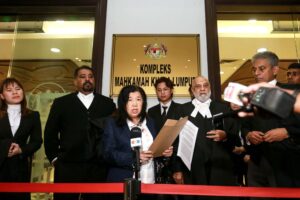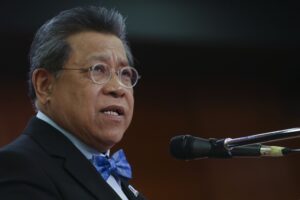KUALA LUMPUR, Sept 10 — The government has taken steps to ensure national revenue remains stable by expanding the scope of the Sales and Service Tax (SST) and retaining the low-value goods tax (LVGT) to ensure fair competition, according to Deputy Finance Minister Lim Hui Ying.
Lim said the moves strengthen the tax base by broadly targeting non-essential goods and certain services, while also ensuring that revenue from high-income groups is not affected.
“The government has decided to include the implementation of a high-value goods tax (HVGT) in the review of sales tax rates and the expansion of the SST.
“Under this SST expansion, selected discretionary items will be subject to sales tax at rates of five per cent or 10 per cent, effective July 1, 2025,” she told the Dewan Negara today.
Lim was responding to a supplementary question from Senator Datuk Ahmad Ibrahim about whether the government has interim measures to ensure revenue from high-income groups is not compromised.
In his original question, Ahmad asked whether the LVGT would be abolished given the economic circumstances of low- and middle-income groups (B40 and M40).
Lim explained that the LVGT system, which came into effect on January 1, 2024, is a different approach aimed at protecting domestic traders.
The deputy finance minister elaborated that before the LVGT was implemented, local traders had to pay tax on imported goods in addition to bearing other operating costs.
Lim pointed out that these costs affected the selling prices of local traders, but foreign sellers operating online could offer lower prices because they were not subject to those taxes or other operating costs.
“Therefore, imposing LVGT taxes allows local merchants to compete fairly – on a level playing field – with foreign sellers in the sale of low-value goods to consumers in Malaysia,” she said.
The government succeeded in collecting RM476 million in 2024 from the implementation of LVGT, thereby demonstrating the policy’s effectiveness in narrowing the tax gap between local and foreign sellers.
“Although the government recognises that the implementation of LVGT taxes can affect prices of goods, including low-value imported items, the primary objective of LVGT is to create fair competition and ensure that local merchants are not sidelined from the flow of global e-commerce,” she said.
Lim also stressed that the government held many engagement sessions with all stakeholders before implementing any tax policy to ensure the interests of the people were protected.
“So all our (the Ministry of Finance) policies have been thoroughly reviewed, and if anything needs to be corrected, we will do so,” she added in response to another supplementary question from Senator Datuk Koh Nai Kwong about the LVGT revenue collected and its impact on consumers, particularly young people. — Bernama





